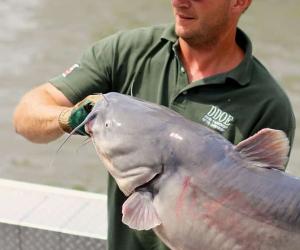15 Abandoned and Forgotten Ghost Towns in Nebraska
Nebraska, the “Cornhusker State,” is famous for its vast prairies and farmland. The landlocked Midwestern state transformed itself from the Great American Desert to an agricultural hub with the dedication of American pioneers. Despite their efforts, many early towns were lucky to last a century. Competition for resources during the Westward Expansion and technological advancements caused many rural towns without unique features and railroads to become obsolete. Many of these so-called ghost towns left little more than rubble, but they impacted the growth of Nebraska. Discover 15 abandoned and forgotten ghost towns in Nebraska and their role in history.
1. Antioch in Sheridan County
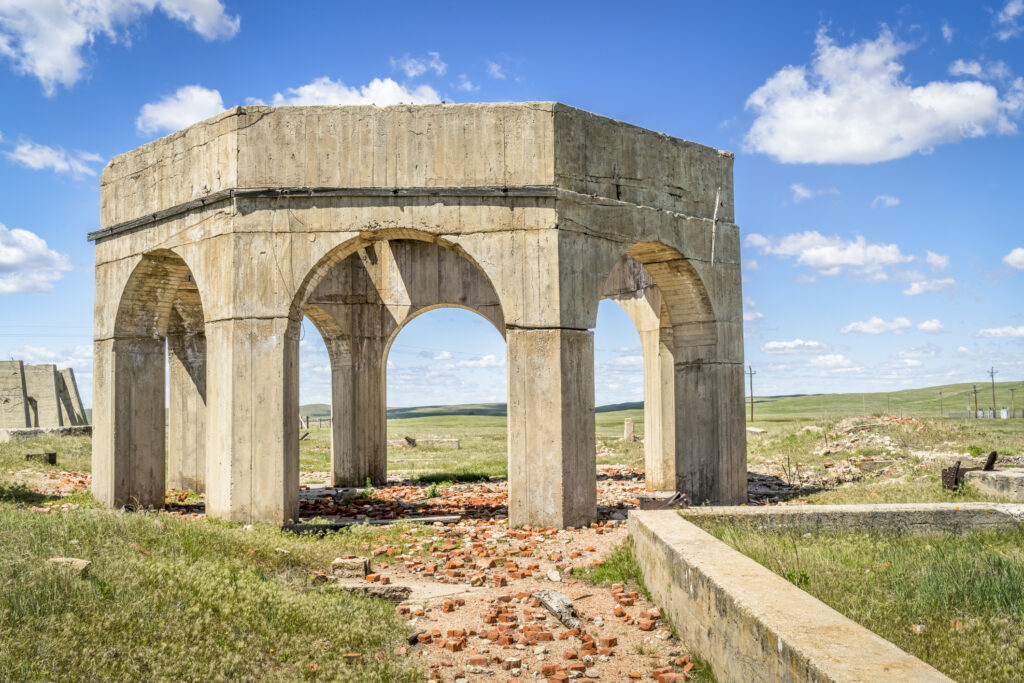
©marekuliasz/iStock via Getty Images
If you drive down Highway 2 through the Sandhills of western Nebraska, you can see the remnants of what was once the potash capital of Nebraska. The tiny town had only one church, schoolhouse, and store until its involvement with World War I. Trade agreements with Germany made it difficult for local farmers to purchase affordable fertilizer. Luckily, scientists from the University of Nebraska found a way to make potash easily. Within a year, five potash reduction factories sprang up in Antioch. By the spring of 1918, Antioch provided potash for various household necessities. The humble population bloomed to over 5,000 residents.
However, the war’s end a few years later meant the demand for potash died down. French and German potash became more affordable again, so the plants ceased operations, and residents moved to other parts of the state to find work. The briefly thriving industrial town no longer had a purpose. It quickly became an abandoned and forgotten ghost town of Nebraska. The ruins of the potash plants remain, giving the abandoned town an eerie quality.
2. Minersville in Otoe County

©Chaden Roggow/iStock via Getty Images
The former railroad town in Ote County was settled along the Missouri River outside of Nebraska City in the 1850s. The town was originally called Bennett’s Ferry because of the popular ferry services offered across the river. However, large coal deposits discovered in 1874 led to the apt name change. At its peak, over 1,000 people lived in the town.
In 1901, a shaft cave in one of the coal mines collapsed and killed all but 14 men and boys working there. Frequent coal mine collapses, and the poor quality of the coal caused many residents to leave. The booming coal town was abandoned by 1923. All that remains are the downtown coal shafts and uninhabited residential areas. The town cemetery has seemingly disappeared, hinting at a potential haunting.
3. Pleasant Hill in Saline County
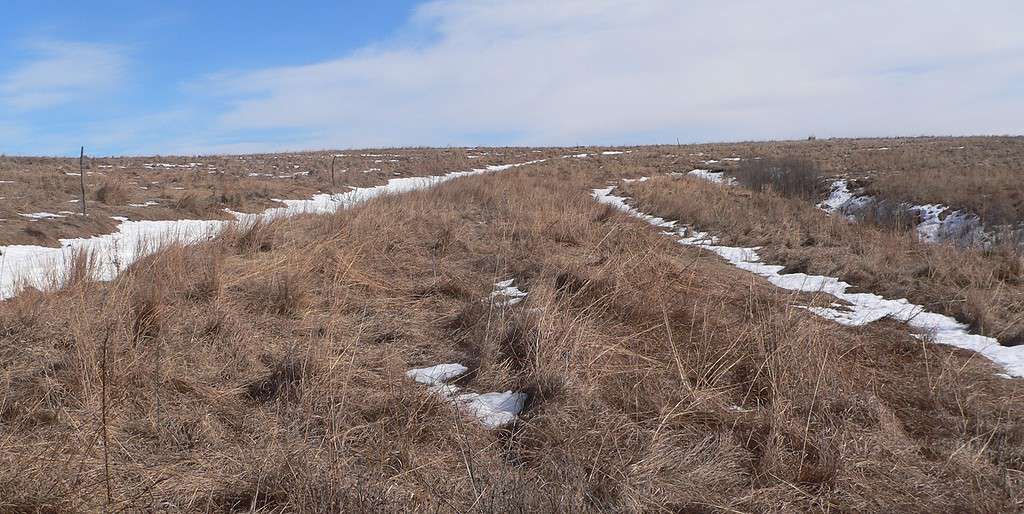
©Ammodramus / CC0 – License
The small town of Pleasant Hill, located southwest of Crete between Turkey Creek and Spring Creek in southern Nebraska, was founded in 1867. For a short time, the community thrived. A post office, sawmill, grist mill, general store, and other businesses provided residents with everything they needed. Pleasant Hill reached its peak in 1900 with a population of 246. However, all good things must end eventually. The lack of a railroad, fires, and losing the county seat to Wilbur made it impossible for the town to survive. Thus, Pleasant Hill is one of Nebraska’s many abandoned and forgotten ghost towns.
4. Dyson Hollow Lime Kiln in Sarpy County
The Dyson Hollow Lime Kiln employed over 400 men during the 1850s. At Dyson Hollow’s peak, there were over 800 residents, saloons, restaurants, general stores, and other thriving local businesses. However, when the lime kiln era came to a screeching halt, towns like Dyson Hollow that depended on their lime kiln to survive were no longer lucrative. By the 1930s, the town was already an abandoned and forgotten ghost town. Those outside of Omaha along Dyson Hollow Road, south of Platteview Road, can see some of the remaining structures and kiln ruins.
5. Brocksburg in Keya Paha County
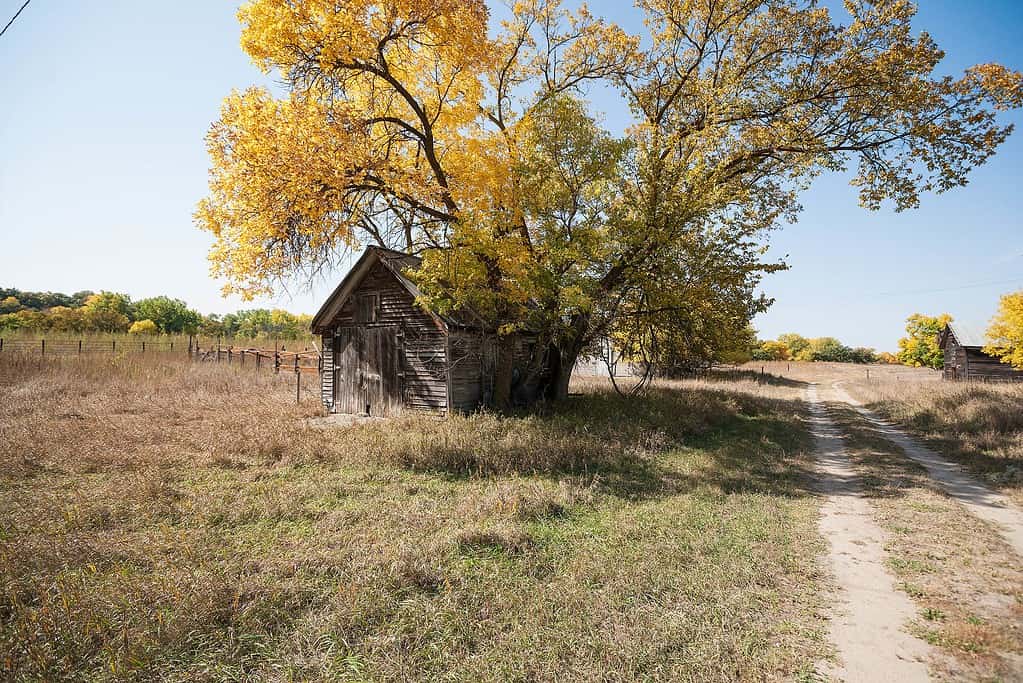
©Andrew Filer from Seattle (ex-Minneapolis) / CC BY-SA 2.0 – License
Along the rolling hills on Highway 137, close to the nearly abandoned towns of Monowi and Gross, is Brocksburg, the picturesque abandoned and forgotten ghost town of Nebraska. If you’re driving along the popular Outlaw Trail Scenic Byway near the Keya Paha River, you can turn right on a dirt road to discover what remains of Brocksburg.
Among the lush trees are old buildings and dilapidated family homesteads that nature is slowly reclaiming. There is even a tornado shelter over a century old still standing. Although no one plans to return, many structures remain in relatively good shape, as if waiting for their owners to come home. Unlike some of the ghost towns of Nebraska, Brocksburg was never booming. However, this humble town, named after and settled by a man named Henry Brockman, had a post office from 1899 to 1957.
6. Sartoria in Buffalo County
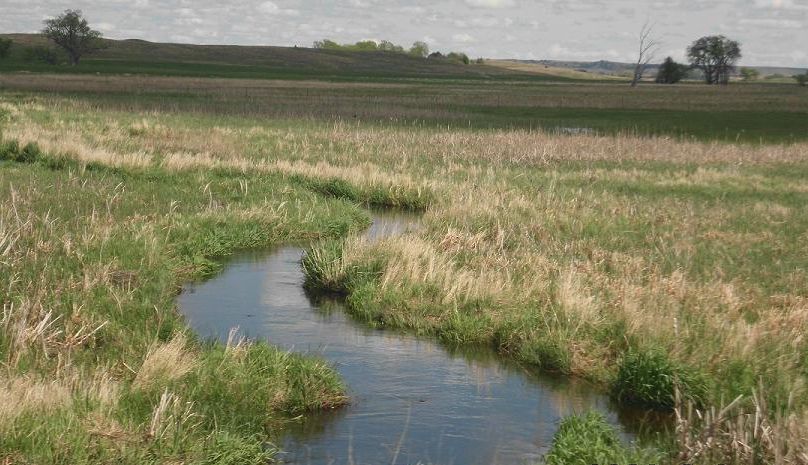
©Titanium35 / CC BY-SA 3.0 – License
John Swenson settled in northwestern Buffalo County in 1874, founding the town of Sartoria. He chose a spot near land he already owned along the South Loup River and gave it the name Sartoria because it was easy to spell and understand for pioneers who spoke different languages. Swenson became the first postmaster and operated several general stores. The town also had a bank, a blacksmith, and a hotel. Sartoria’s population peaked at 40 but remained a social and commercial hub for residents of nearby towns. In fact, there was a race track and boxing club. However, the lack of a railroad led to the demise of Sartoria around 1924.
7. Dobytown in Kearney County
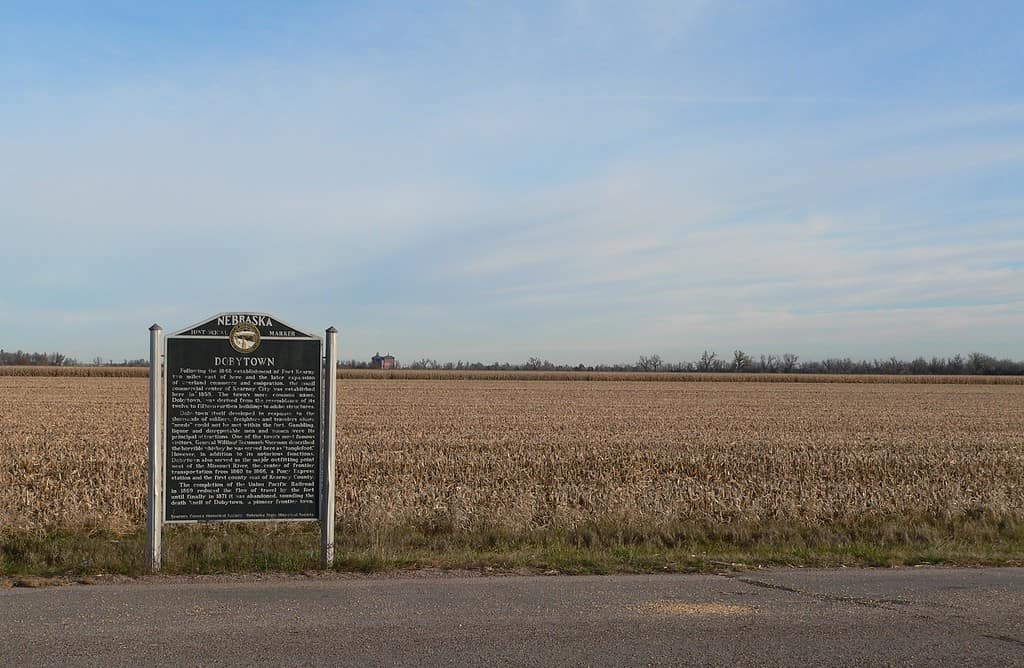
©Ammodramus / Public Domain – License
Although officially named Kearney City for the small town three miles west of Fort Kearny, it went by the popular nickname Dobytown – a reference to the adobe-like buildings built here. Dobytown became home to soldiers, traders, and pioneers working at the military outpost or traveling between Independence, Missouri, and the West Coast in 1848. Due to its residents, it became a hub for liquor, gambling, and prostitution. Dobytown was also the first county seat of Kearney County. The town continued to boom with its Pony Express station and famous visitors such as William Tecumseh Sherman.
However, its success was cut short by the Union Pacific Railroad, by taking travelers away from the town. By 1971, Fort Kearny closed, and Dobytown was abandoned shortly after. The community of Dobytown no longer exists, but the site was added to the National Register of Historic Places in 1974. You can stop by and see the historical marker that reminds travelers of what was once there.
8. DeWitty in Cherry County
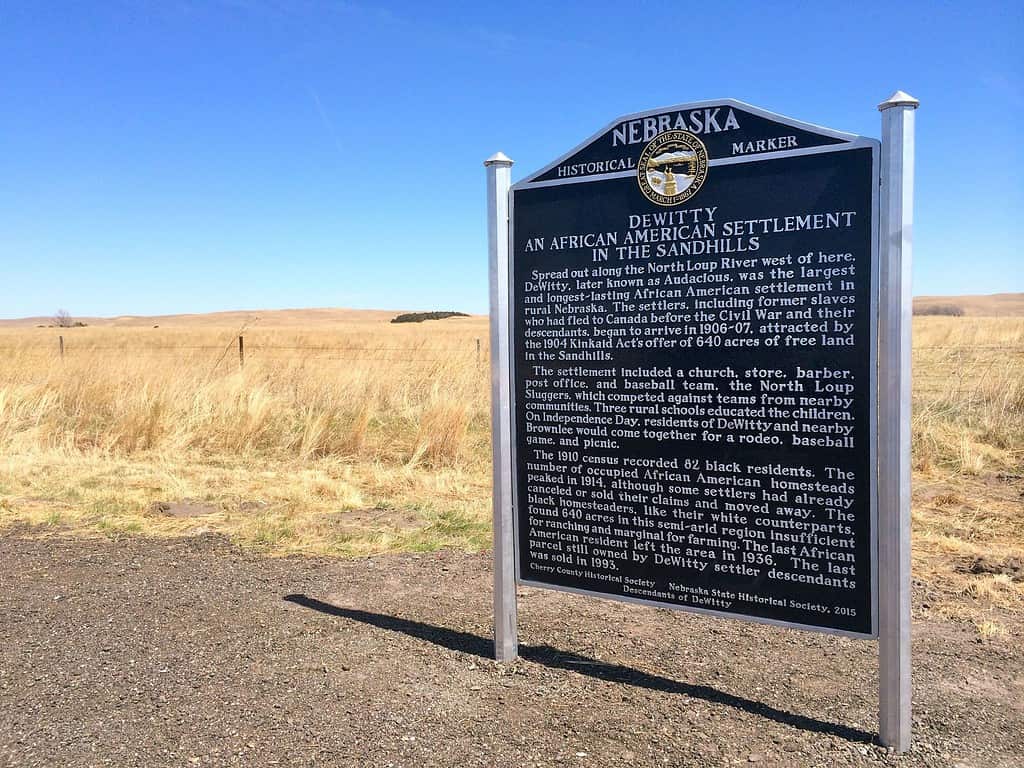
©Stewmag / CC BY-SA 4.0 – License
Along the North Loup River in the Sandhills of Cherry County is Dewitty, later called Audacious. The settlement was the largest and longest-lasting African-American settlement in rural Nebraska. About 12 families left Ontario in 1880 to the 640 acres of Cherry County that would become DeWitty. Many of the settlers were formerly enslaved, fleeing to Canada before the Civil War, then returning to the United States in 1904 after the passing of the Kindred Act. The bustling settlement had a post office, church, school, general store, and an all-Black, undefeated baseball team called the North Loup Sluggers.
By 1920, 180 families owned 40,000 acres. However, homesteaders in the region didn’t produce lucrative results, so the last resident left in 1936. In 2016, a Nebraska State Historical Marker was installed along Highway 83 to commemorate the settlement. Although abandoned, DeWitty is not forgotten. In fact, the Descendants of DeWitty continue to preserve the town’s history.
9. St. Deroin in Nemaha County
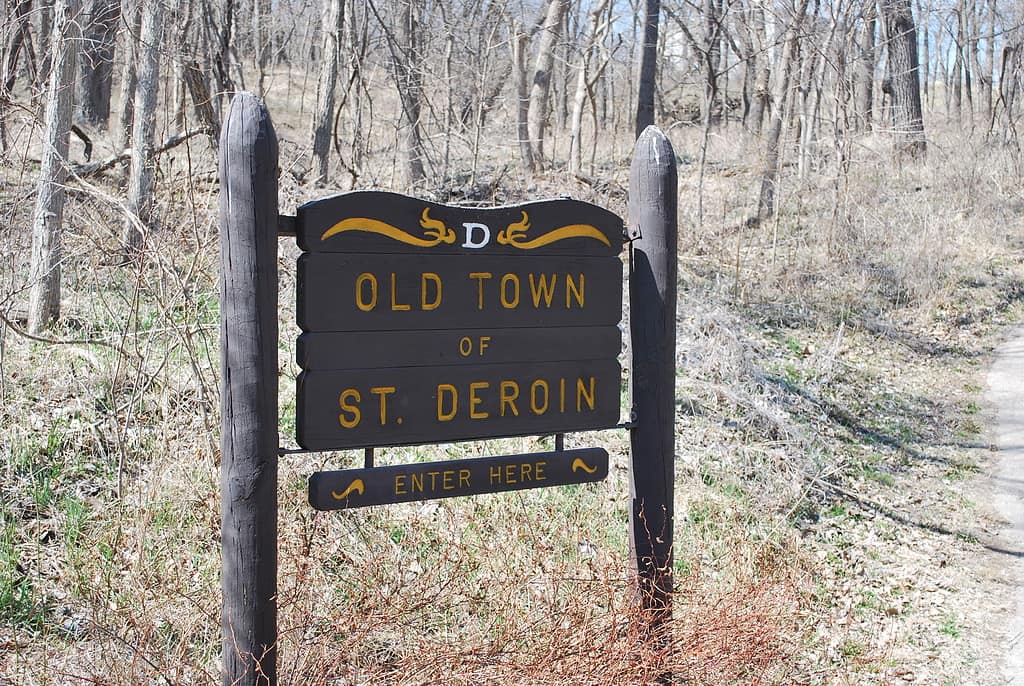
©DickClarkMises / CC0 – License
Located in Indian Cave State Park near Shubert is another abandoned and forgotten ghost town in Nebraska. St. Deroin was a small trading and ferry town along the bank of the Missouri River with residents of multiracial ancestry. The town was chartered in 1854 and thrived in the 1870s with a population of over 200, nearly two dozen businesses, and a schoolhouse.
However, it was abandoned in 1920 when the Missouri River changed course. Continuous flooding obstructed the railway and made ferrying impossible. Moreover, much of the town below the river bluff washed away. Visit what remains of the cemetery, schoolhouse, and reconstructed village to learn more about St. Deroin and the surrounding area in the Indian Cave State Park.
10. Venus in Knox County
In the southwest corner of Knox County are the remains of one of Nebraska’s many abandoned and forgotten ghost towns. The little town of Venus, named for the Roman goddess of love, was established in 1880. The community began as a post office location but grew in size because of its general store. The post office operated until 1959, but the town held on for two more decades along with its general store. Today, some of the slanted and peeling wood buildings are fighting to keep the town’s memory alive.
11. Rock Bluff in Cass County
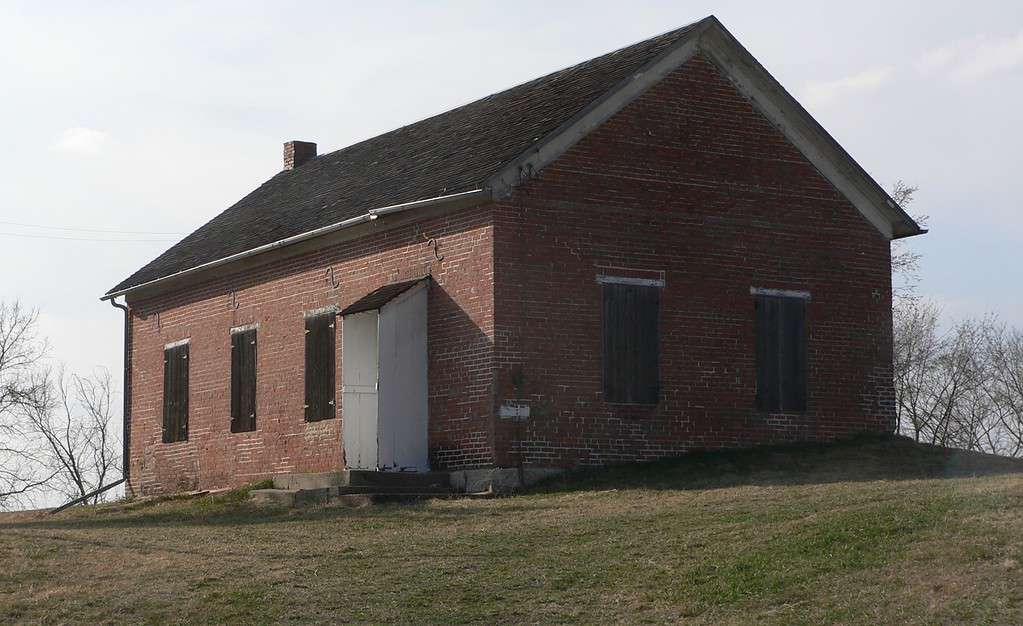
©Ammodramus / CC0 – License
Located along the rocky bluffs of the Missouri River was the Rock Bluffs village, settled in 1854. The town was once called the liveliest town on the Missouri River, rivaling the city of Omaha. It’s primary purpose was to help people cross the Missouri River to the plains. In fact, steamboat travel was the backbone of the town’s success. By 1877, there were 200 residents, including a mayor, a church, and a variety of businesses. Rock Bluff also competed with Plattsmouth to be the county seat of Cass County.
However, the railroad bridge built in Omaha in the 1870s and a new set of railroad tracks outside the city reduced its importance. The Naomi Institute opened and offered higher learning in the same year but only operated for two years due to a lack of support. For years, it served as the Rock Bluff School. All the remains of this special abandoned and forgotten ghost town of Nebraska are the cemetery and the one-room schoolhouse that is now a museum.
12. Neapolis in Saunders County
Did you know deciding the location for Nebraska’s capital city spurred a lingering controversy? In fact, the decision resulted in filibusters and violence on the legislature floor. Omaha was the state’s territorial capital, later replaced by Lincoln. Tensions arose when the delegates could not agree on whether the north or south of the Platte River would control the state. Some even considered joining Kansas. However, Neapolis, or “new city,” was created. The location was planned on the Pahuk bluff, popularly known as Capitol Hill.
At the time, the town held only log buildings leftover from the Union Pacific Railroad construction. Lancaster, later becoming Lincoln, won the capital vote. But Neapolis was listed on the National Register of Historic Places because of its Pawnee heritage. The little town on the bluffs also paved the way for the surviving city, Cedar Bluffs.
13. Mud Springs in Morrill County
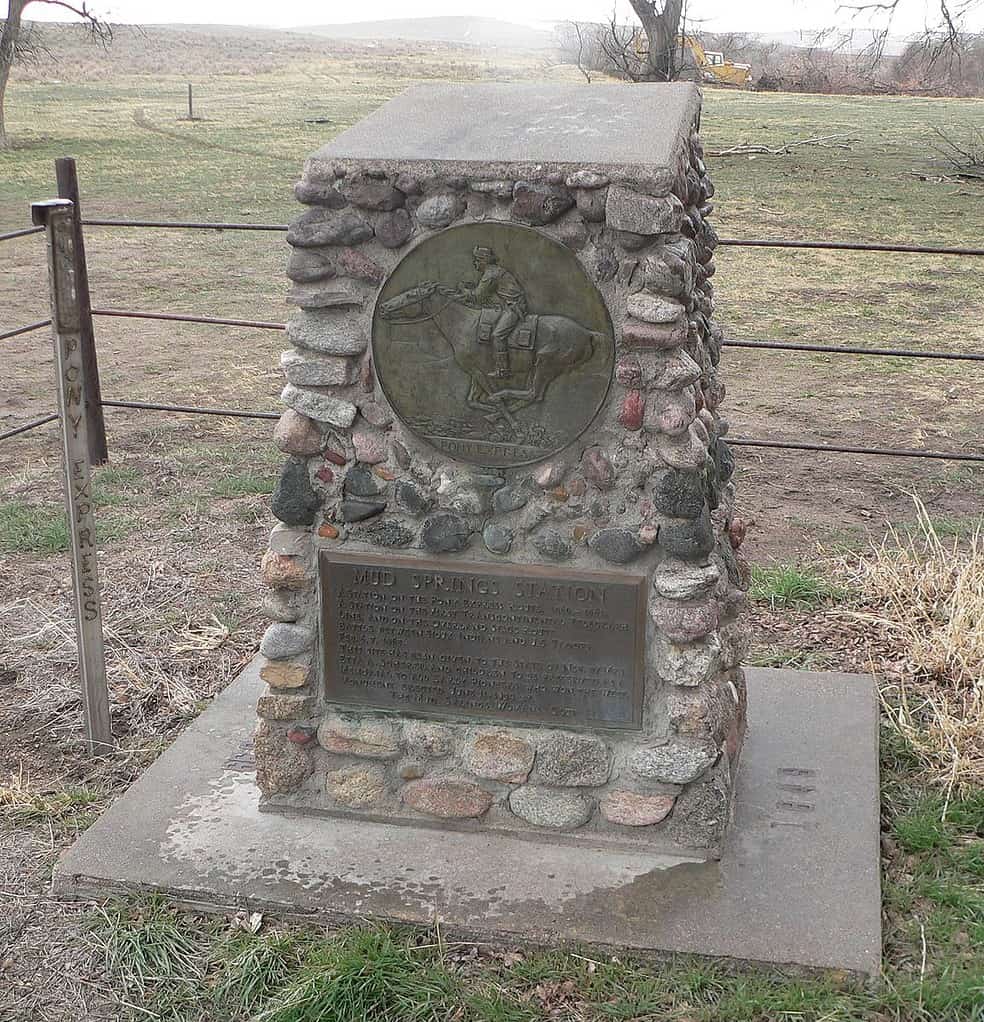
©Ammodramus / CC0 – License
In south-central Morrill County, near Dalton, is the former site of Mud Springs. Sod buildings in the town were constructed in 1859 and served as the first stage of the 1860 Pony Express built in 1860. However, it operated for only a year. The home station provided meals, lodging, and horses to travelers passing through the area. Mud Springs gets its name from the springs along the mouth of the canyon between the Lodgepole Creek and North Platte River valleys.
A daily coach service and transcontinental telegraph station continued the town’s legacy. However, the Battle of Mud Springs in 1865 between U.S. troops and the Arapaho, Cheyanne, Lakota, and Sioux tribe members is the most memorable occurrence on the historic site. Afterward, the town became a watering hole for longhorn Texas cattle.
14. Covington in Dakota County
One of the most notorious settlements was one of the “wickedest places in the world” and associated with towns such as Deadwood and Dodge City. Now, it’s reputation is a memory. Covington was established along the Missouri River outside of Sioux County, Iowa in 1857. Nebraska’s abandoned and forgotten ghost town was once famous for its brothels, saloons, and gambling dens. However, an 1893 election brought the end of Covington as it was incorporated into South Sioux City.
15. Montrose in Sioux County
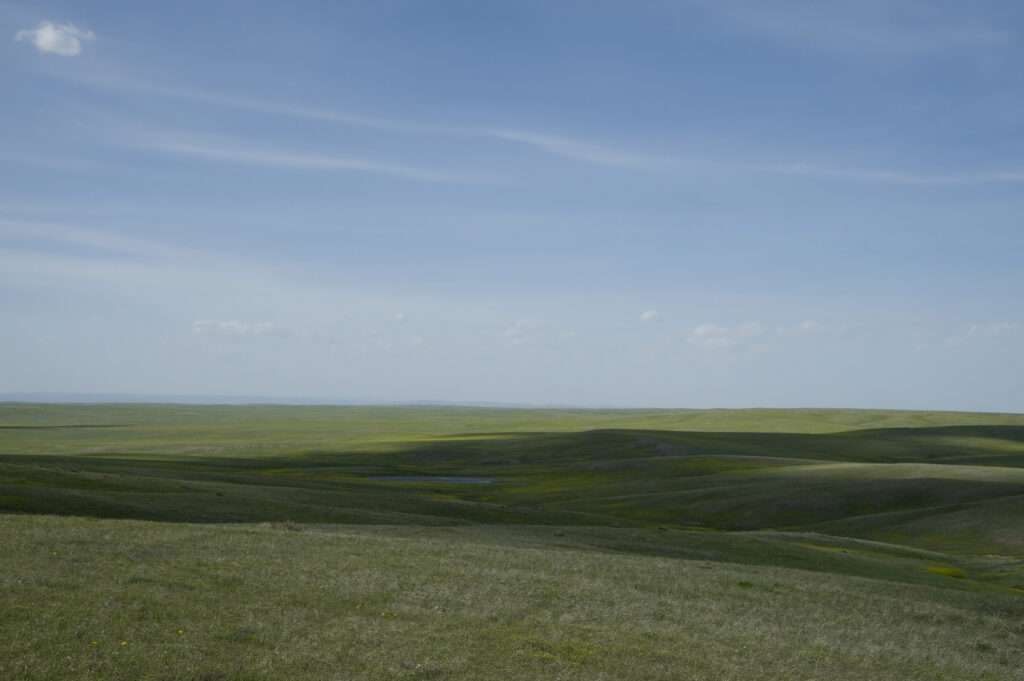
©karenparker2000/iStock via Getty Images
The former village of Montrose in Sioux County is near the intersection of the Powder River Trail and the Cheyanne & Black Hills State Road and is part of the Oglala National Grassland. The site was outside the spot where Buffalo Bill Cody killed the Cheyanne Warrior, Yellow Hand, in the 1876 Battle of Warbonnet Creek. However, in 1887, Austrian and German immigrants established the town. They named it after the elevation and native rose bushes in the area. The same year they built the Immaculate Conception Catholic Church, which still stands today and occasionally holds Mass.
By 1904, Montrose had a school, general store, and a blacksmith. The population peaked in 1910 with 24 residents. The post office closed in 1948. Then in 1953, the schoolhouse was removed and the town dissolved. Other than the church, the only reminder of the town is the adjacent cemetery.
Summary of 15 Abandoned and Forgotten Ghost Towns in Nebraska
| Number | Abandoned Town | Location |
|---|---|---|
| 1 | Antioch | Sheridan County |
| 2 | Minersville | Otoe County |
| 3 | Pleasant Hill | Saline County |
| 4 | Dyson Hollow Lime Kiln | Sarpy County |
| 5 | Brocksburg | Keya Paha County |
| 6 | Sartoria | Buffalo County |
| 7 | Dobytown | Kearney County |
| 8 | DeWitty | Cherry County |
| 9 | St. Deroin | Indian Cave State Park in Nemaha County |
| 10 | Venus | Knox County |
| 11 | Rock Bluff | Cass County |
| 12 | Neapolis | Saunders County |
| 13 | Mud Springs | Morrill County |
| 14 | Covington | Dakota County |
| 15 | Montrose | Oglala National Grassland in Sioux County |







